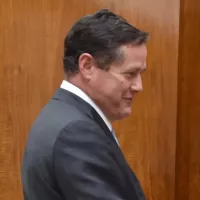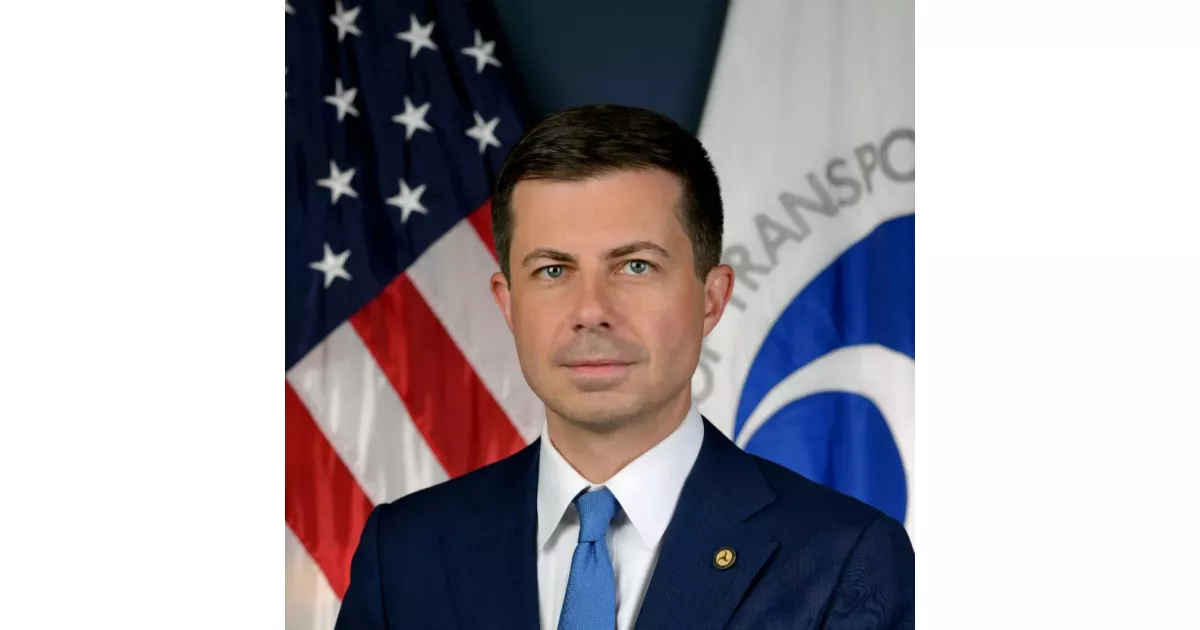How Pete Buttigieg built a successful career. Explore key moments that defined the journey.
Pete Buttigieg is an American politician and former naval officer, most notably serving as the U.S. Secretary of Transportation (2021-2025). He's a member of the Democratic Party and gained prominence as the 32nd Mayor of South Bend, Indiana (2012-2020), earning the moniker 'Mayor Pete.' Buttigieg is a public figure known for his political career and prior military service.
2002: Internship with Jill Long Thompson
In 2002, Buttigieg interned for Democrat Jill Long Thompson during her unsuccessful congressional bid.
2004: Works on John Kerry's Campaign
In 2004, Buttigieg worked on John Kerry's presidential campaign as a policy and research specialist.
2005: Conference director at the Cohen Group
From 2004 to 2005, Buttigieg was conference director of the Cohen Group.
2005: Involved with Truman National Security Project
Since 2005, Buttigieg has been involved with the Truman National Security Project.
2006: Assistance to Joe Donnelly's Campaign
In 2006, Buttigieg lent assistance to Joe Donnelly's successful congressional campaign.
2007: Consultant at McKinsey & Company
In 2007, Buttigieg became a consultant at the Chicago office of McKinsey & Company.
2008: Research Director for Jill Long Thompson
In 2008, Buttigieg took a leave of absence from McKinsey to become research director for Jill Long Thompson's campaign for Indiana governor.
September 2009: Joins U.S. Navy Reserve
In September 2009, Buttigieg joined the U.S. Navy Reserve as an ensign in naval intelligence.
2009: Joins the United States Navy Reserve
In 2009, Buttigieg became an intelligence officer in the United States Navy Reserve.
2010: Leaves McKinsey & Company
In 2010, Buttigieg left McKinsey & Company to focus on his campaign for Indiana state treasurer.
2010: Runs for Indiana State Treasurer
In 2010, Buttigieg ran unsuccessfully as the Democratic nominee for Indiana state treasurer.
2010: Runs for State Treasurer of Indiana
In 2010, Buttigieg was the Democratic nominee for state treasurer of Indiana but lost to the Republican incumbent, Richard Mourdock.
May 3, 2011: Wins Mayoral Primary Election
On May 3, 2011, Buttigieg won his primary election against four opponents, receiving 7,663 votes.
November 2011: Elected Mayor of South Bend
In November 2011, Buttigieg was elected mayor of South Bend with 10,991 of the 14,883 votes cast.
2011: Elected as Mayor of South Bend
In 2011, Buttigieg was elected as mayor of South Bend.
January 2012: Takes Office as Mayor
In January 2012, Buttigieg took office as mayor of South Bend.
2013: Launching of 3-1-1 system
In 2013, Buttigieg's administration oversaw the city's launching of a 3-1-1 system.
2013: Proposed Smart Streets urban development program
In 2013, Pete Buttigieg proposed the Smart Streets urban development program to improve South Bend's downtown area.
2014: Deployment to Afghanistan
In 2014, Buttigieg took a seven-month leave during his mayoral term to deploy to Afghanistan.
2014: Named to Truman National Security Project Board
In 2014, Buttigieg was named to the Truman National Security Project's board of advisors.
2014: Announced candidacy for second term
In 2014, Pete Buttigieg announced his intention to seek a second term as mayor in 2015.
June 2015: Coming Out as Gay
In June 2015, Buttigieg came out as gay in a piece in the South Bend Tribune, becoming Indiana's first openly gay elected executive and the highest elected official in Indiana to come out.
November 2015: Elected to second term as mayor
In November 2015, Pete Buttigieg was elected to his second term as mayor of South Bend with over 80 percent of the vote, defeating Republican Kelly Jones.
November 2015: Completion of "Vacant and Abandoned Properties Initiative"
In November 2015, the "Vacant and Abandoned Properties Initiative" reached its goal two months before its scheduled end date.
2015: Secured bond issue for Smart Streets program
In early 2015, after traffic studies and public hearings, Pete Buttigieg secured a bond issue for the Smart Streets program, backed by tax increment financing.
2016: Signed executive order for city identification card
In 2016, after winning reelection, Buttigieg signed an executive order helping to establish a recognized city identification card.
2016: Smart Streets project partially completed
In 2016, elements of the Smart Streets project were completed, contributing to economic development, urban vibrancy, and road safety in South Bend.
2016: Broke ground on Studebaker complex renovation
In 2016, the City of South Bend partnered with the State of Indiana and private developers to break ground on a $165-million renovation of the former Studebaker complex, aiming to create industrial and housing units.
2016: Campained in U.S. Senate election
In the 2016 U.S. Senate election in Indiana, Pete Buttigieg campaigned on behalf of Democratic Senate nominee Evan Bayh and criticized Todd Young for his stance on the military's 'don't ask, don't tell' policy. He also endorsed Hillary Clinton in the Democratic presidential primaries, and Lynn Coleman.
January 2017: Announced candidacy for DNC chair
In January 2017, Pete Buttigieg announced his candidacy for chairman of the Democratic National Committee (DNC) in its 2017 chairmanship election.
March 2017: Defense of Indiana Resident
In March 2017, Buttigieg defended a Granger, Indiana resident who was deported after living in the U.S. for 17 years, despite regularly checking in with ICE and applying for a green card, in an article for HuffPost.
2017: Leaves U.S. Navy Reserve
In 2017, Buttigieg left the U.S. Navy Reserve.
2017: Leaves the United States Navy Reserve
In 2017, Buttigieg left the United States Navy Reserve, having attained the rank of lieutenant.
2017: Increased out-of-city travel
In 2017, as Buttigieg's national profile grew following his run in the Democratic National Committee chairmanship election, Buttigieg increased his out-of-city travel.
2017: Announcement of Ivy Tower renovation
In 2017, it was announced that Studebaker Building 84, also known as Ivy Tower, would have its exterior renovated with $3.5 million in Regional Cities funds from the State of Indiana and another $3.5 million from South Bend tax increment financing, with plans for the building and other structures in its complex to serve as a technology hub.
2017: Smart Streets project officially completed
In 2017, the Smart Streets project was officially completed, and it was credited with spurring private development in South Bend.
2017: Smart sewer program phase one completed
In 2017, under Buttigieg, the first phase of the city's smart sewer program was finished at a cost of $150 million, using federal funds to reduce sewer overflow.
June 16, 2018: Marriage to Chasten Glezman
On June 16, 2018, Buttigieg married Chasten Glezman in a private ceremony at the Cathedral of St. James, becoming the first mayor of South Bend to get married while in office.
August 2018: Promoted relocation of South Shore Line station
In August 2018, Pete Buttigieg promoted the idea of moving the city's South Shore Line station from South Bend International Airport to the city's downtown.
December 2018: Announced he would not seek a third term
In December 2018, Pete Buttigieg announced that he would not seek a third term as mayor of South Bend.
2018: Speculation of run for governor or president
By early 2018, there was speculation that Pete Buttigieg would run for either governor or president in 2020.
2018: Founded Hitting Home PAC
For the 2018 midterms, Pete Buttigieg founded the political action committee (PAC) Hitting Home PAC and endorsed 21 congressional candidates in October.
January 23, 2019: Formed exploratory committee
On January 23, 2019, Pete Buttigieg announced he was forming an exploratory committee to run for President of the United States in the upcoming 2020 election.
January 23, 2019: Officially announced presidential run
On January 23, 2019, Pete Buttigieg officially announced his run for President of the United States.
February 12, 2019: Published autobiography
On February 12, 2019, Pete Buttigieg published his autobiography, "Shortest Way Home".
April 14, 2019: Launch of Presidential Campaign
On April 14, 2019, Buttigieg launched his campaign for the 2020 presidential election, becoming the first openly gay man to launch a Democratic presidential campaign.
April 2019: Approved request to develop climate plan
In April 2019, the Common Council approved Pete Buttigieg's request to enable his administration to develop a city climate plan. Buttigieg then signed a contract with the Chicago firm Delta Institute to help develop it.
May 2019: Mueller won Democratic primary
In May 2019, James Mueller, endorsed by Buttigieg, won the Democratic primary in the South Bend mayoral election with 37 percent of the vote.
November 2019: Commissioned review of police department policies
In November 2019, Pete Buttigieg secured $180,000 to commission a review of South Bend's police department policies and practices, to be conducted by Chicago-based consulting firm 21CP Solutions.
November 2019: Approved Carbon Neutral 2050 plan
In late November 2019, South Bend's Common Council voted 7-0 to approve the Carbon Neutral 2050 plan, setting goals to meet the Paris Agreement's emission reduction targets by 2025 and 2035.
November 2019: Mueller defeated Republican nominee
In the November 2019 general election, James Mueller, endorsed by Buttigieg, defeated Republican nominee Sean M. Haas with 63 percent of the vote.
December 2019: Rose into top-tier candidate
By December 2019, Pete Buttigieg had risen into the top-tier of candidates in the Democratic primary.
2019: Private investment in South Bend
By 2019, South Bend had seen $374 million in private investment for mixed-use developments since Buttigieg had taken office, according to one estimate.
2019: Asked city to be released from EPA agreement
In 2019, Buttigieg asked for the city to be released from an agreement with the EPA brokered under his mayoral predecessor Steve Luecke, which required South Bend to make further improvements to its sewer system by 2031.
2019: Launched Commuters Trust program
In 2019, South Bend launched Commuters Trust, a new transportation benefit program in collaboration with local employers and transportation providers like South Bend Transpo and Lyft, made possible by a $1 million grant from Bloomberg Philanthropies Mayors Challenge.
February 2020: Led Iowa Democratic caucuses
In early February 2020, Pete Buttigieg led the 2020 Iowa Democratic caucuses results with 26.2 percent to Bernie Sanders' 26.1 percent, winning 14 delegates to Sanders's 12.
March 1, 2020: Drops Out of Presidential Race
On March 1, 2020, Buttigieg dropped out of the presidential race.
April 2020: Launched Win The Era PAC
In April 2020, Pete Buttigieg launched Win The Era PAC, a new super PAC to raise money and distribute it to down-ballot Democrats, focusing on local elected positions.
June 8, 2020: Hired by University of Notre Dame
On June 8, 2020, the University of Notre Dame announced that it had hired Pete Buttigieg as a teacher and researcher for the 2020–21 academic year.
September 5, 2020: Announced as member of Biden-Harris Transition Team
On September 5, 2020, Pete Buttigieg was announced to be a member of the advisory council of the Biden-Harris Transition Team that was planning the presidential transition of Joe Biden.
October 2020: Released second book
In October 2020, Pete Buttigieg released his second book, "Trust: America's Best Chance".
November 7, 2020: Biden declared winner of election
Following the end of his presidential campaign, Buttigieg was considered a possible Cabinet appointee in Joe Biden's administration. After Biden was declared the winner of the election on November 7, 2020, Buttigieg was again mentioned as a possible nominee for Secretary of Veterans Affairs, Ambassador to the United Nations, Ambassador to China or Secretary of Transportation.
December 15, 2020: Nominated as Secretary of Transportation
On December 15, 2020, Joe Biden announced that he would nominate Pete Buttigieg as his Secretary of Transportation.
December 2020: Nomination for Secretary of Transportation
In December 2020, President-elect Biden nominated Buttigieg as his nominee for Secretary of Transportation.
2020: Speculation of run for governor or president
By early 2018, there was speculation that Pete Buttigieg would run for either governor or president in 2020.
2020: End of Mayoral term
In 2020, Pete Buttigieg's term as mayor of South Bend, Indiana came to an end.
February 2, 2021: Confirmation as Secretary of Transportation
On February 2, 2021, Buttigieg's nomination was confirmed, making him the first openly gay Cabinet secretary in U.S. history.
March 2021: Consideration of Tolls on Interstate 80
In March 2021, Buttigieg indicated his openness to tolls on Interstate 80, while suggesting broader solutions like a mileage tax, though the Biden administration did not include these in its infrastructure plan that month.
March 2021: Prioritization of Gateway Rail Tunnel Project
In late March 2021, Buttigieg informed Congress of the Biden administration's plan to prioritize the construction of the Gateway Rail Tunnel Project due to its economic significance.
May 19, 2021: Reinstatement of Obama-era pilot program
On May 19, 2021, Buttigieg reinstated an Obama-era pilot program that ensures local hiring for public works projects, with the goal of helping minorities and disadvantaged individuals.
October 2021: Return to public life after parental leave
In early October 2021, after being on paid leave since mid-August 2021, Buttigieg ramped up activities, making many media appearances following his parental leave after the birth of his twins.
2021: Becomes Secretary of Transportation
In 2021, Buttigieg became the 19th United States Secretary of Transportation.
June 2022: Launch of Reconnecting Communities pilot program
In late June 2022, Buttigieg launched a $1 billion Reconnecting Communities pilot program to establish racial equity in roads, utilizing funds from the Infrastructure Investment and Jobs Act to reconnect cities and neighborhoods divided by roads.
March 2023: Opposition to Spirit Airlines and Frontier Airlines merger
In March 2023, Buttigieg opposed the proposed merger of Spirit Airlines and Frontier Airlines, citing anticompetitive concerns.
December 2023: Record Fine on Southwest Airlines
In December 2023, the Department of Transportation, under Buttigieg, imposed a record fine of $140 million on Southwest Airlines for consumer protection violations in 2022.
October 30, 2024: Announcement of Airline Refund Rule
On October 30, 2024, Buttigieg announced a new rule requiring airlines to automatically provide refunds to passengers for cancelled flights or unprovided paid services.
2024: Consideration as Running Mate
In 2024, press reports mentioned Buttigieg as a possible running mate for Kamala Harris, though he was ultimately not selected.
January 2025: Consideration of U.S. Senate Run in Michigan
In January 2025, news reports surfaced that Buttigieg was considering a run for U.S. Senate in Michigan following the retirement announcement of Senator Gary Peters.
March 2025: Decision Not to Run for Senate in Michigan
In March 2025, Buttigieg opted not to run for the U.S. Senate in Michigan in 2026, with sources indicating he was considering a presidential run in 2028.
April 2025: Fellow at the University of Chicago Institute of Politics
From February to April 2025, Buttigieg served as a fellow at the University of Chicago Institute of Politics, conducting a weekly seminar.
2025: End of term as Secretary of Transportation
In 2025, Pete Buttigieg's term as the 19th United States Secretary of Transportation came to an end.
2025: Goal to complete South Shore Line relocation
In 2025, it was Pete Buttigieg's goal to have the city complete the relocation of the South Shore Line station to downtown South Bend.
Mentioned in this timeline

Barack Obama the th U S President - was the...

Hillary Diane Rodham Clinton is a prominent American politician lawyer...

John F Kennedy JFK was the th U S President...

Joe Biden is an American politician who served as the...

The White House located at Pennsylvania Avenue NW in Washington...
California is a U S state on the Pacific Coast...
Trending
1 hour ago Iowa Schools Delay, Cancel Classes Due to Winter Storm and Snow Forecast

2 hours ago Trump Considers Iran Options: Targeted Attacks, Regime Change, Amidst Growing US Military Buildup.

2 hours ago Jes Staley's Connection to Epstein Files Examined Amidst Leon Black Revelations and Contradictory Testimony.
3 hours ago Del Taco exits Columbus, Phenix City; Georgia locations close permanently and abruptly

4 hours ago Kindergarten SOS: Staff Shortages, Child Hunger, and Parental Addiction Concerns Rise.
5 hours ago Derrick Jones Jr. scores season-high 22 points; Mathurin leads Clippers over Nuggets.
Popular

Jesse Jackson is an American civil rights activist politician and...
Randall Adam Fine is an American politician a Republican who...

Pam Bondi is an American attorney lobbyist and politician currently...

Bernie Sanders is a prominent American politician currently serving as...

Ken Paxton is an American politician and lawyer serving as...

Barack Obama the th U S President - was the...


